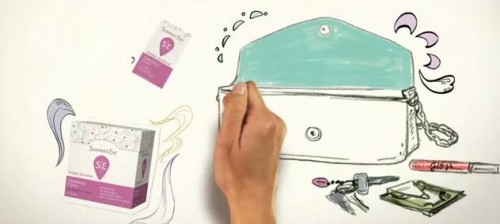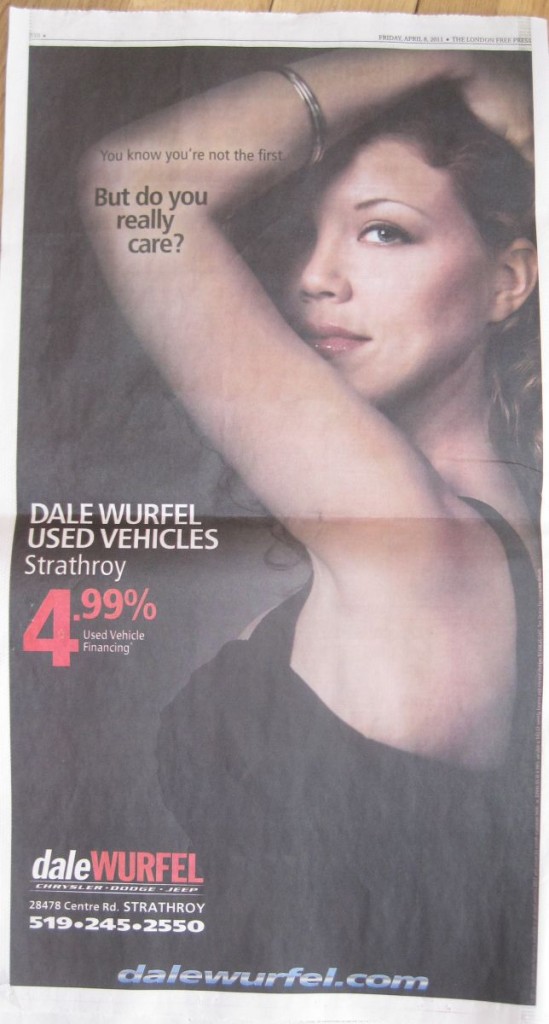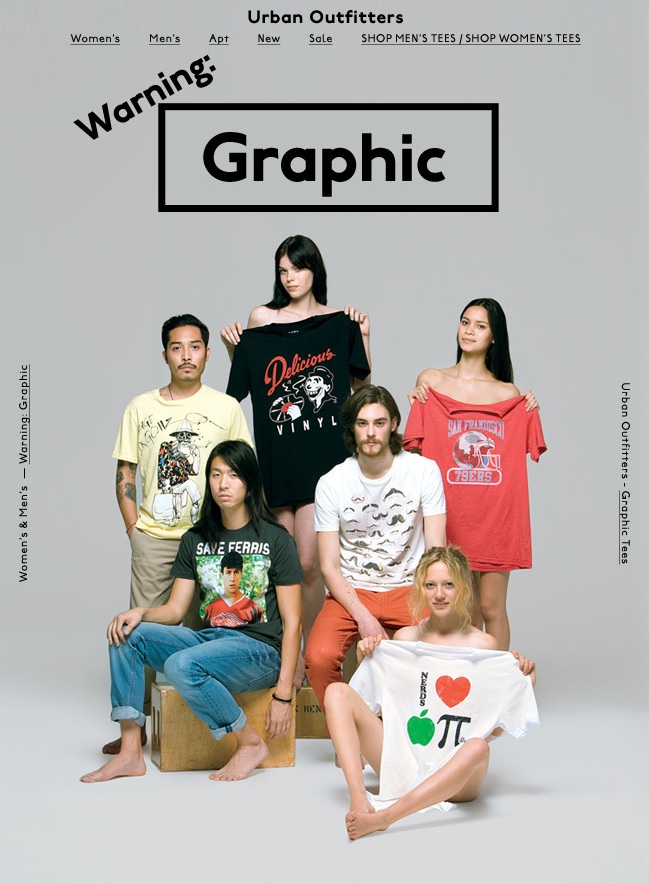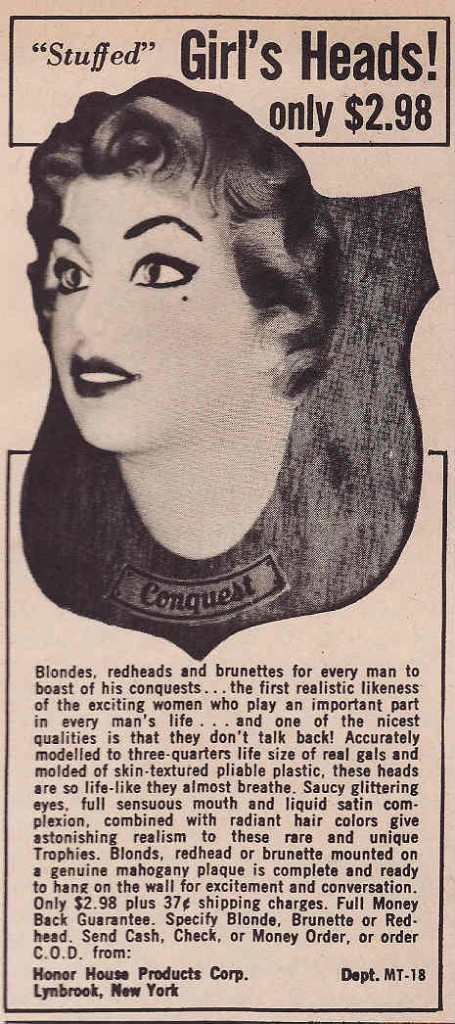I don’t play video games. The few times I have played a game it involved a furry animal working his way through some kind of tropical forest and the most violent it got was when he hit a villainous turtle on the head with a coconut. So, I am not familiar with Duke Nukem.
Of course, one Google search tells me he is a supremely popular, freakishly over-muscled, machine gun-wielding, hyper-aggressive action “hero” who is described in the Wikipedia entry as “frequently politically incorrect.” His character profile also claims that when he was first introduced, he was a CIA operative hired to save Earth from Dr. Proton. But the current marketing materials make clear what the really important aspects of the game are. Exhibit A is this ad, which greeted me as I came out of the subway this morning:
Duke Nukem is sitting on a throne while two women in schoolgirl outfits sit at his feet. The caption leaves no doubt about the main attractions: “This game has bazookas. Both types.”
The game’s website presents a guy who looks intensely devoted to his steroid regimen, has a penchant for unloading 50 rounds into anything with tentacles, and who appears to live in a post-apocalyptic land which is somehow still able to generously supply women with fetish outfits, bikinis, and manicures. In a video promo for the game on YouTube there are scenes of Duke on a shooting rampage interspersed with what appears to be him walking into a room and seeing a switched-on vibrator skidding around the room. He then encounters two women (the Holsom Twins, Mary and Kate) in schoolgirl outfits who drop their weapons to touch and caress each other in sexually suggestive ways. Duke is watching this while pointing a gun at them, saying, “allll right, time for my reward” (NSFW due to images and language):
Unfortunately for the twins, they later have sex with an alien and get themselves into trouble (thanks to Michael R. for this clip; also NSFW):
Many other reviews of Duke Nukem have also pointed out its violent sexual imagery and encouragement of sexually violent behavior towards women. Just to tally up, we have:
- Fetishizing and infantilizing women by putting them in outfits associated with children.
- Referring to their breasts as “bazookas,” both objectifying women and equating their bodies with a military weapon.
- A lesbian encounter presented as titillation for the male viewer.
- Watching women engage in sexual activity with one another, and even threatening women with weaponry to continue engaging in sexual activity with one another, is your reward. You deserve it – you deserve to be sexually gratified.
People learn by watching. This can be good and bad. It can make us more accepting of others’ opinions and outlooks, and it can also desensitize and normalize harmful opinions and behaviors. In regards to Duke, the latter is where the risk lies — the more one sees images like those presented by Duke Nukem, the more likely they are to be seen as what is acceptable and usual. Normalizing harmful, degrading, and insulting stereotypes of and behavior toward women seems like a high price to pay for a video game’s success.
———————-
Larkin Callaghan is a doctoral student at Columbia University studying health behavior and education. She is particularly concerned with gender disparities in access to healthcare and prevention services, and has done research on adolescent female sexual health, how social media operate as an educational platform, and differences by gender in the effectiveness of brief health interventions. You can follow her on Twitter, Tumblr, and at her blog.








